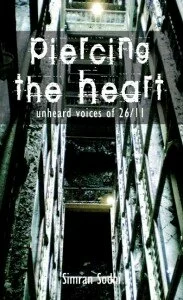Interview : Simran Sodhi , Editor,Foreign Affairs,The Statesman
She is a journalist to the core. Having studied International Relations from The American University, she worked in the United States until the home beckoned her. She chose working as a journalist in India over the American citizenship. She is now the foreign affairs editor with The Statesman newspaper. Journalist and Author, Simran Sodhi speaks to mediakhabar.
Thank you for taking time off your schedule and talking to us. Simran, you are a graduate in Electrical Engineering. So what made you enter into journalism?
I was always interested in writing and was a voracious reader as a kid. During my engineering days, I started to free lance with a couple of newspapers and I also ran a college magazine. All that led me to do a summer internship with The Indian Express where I was exposed to the intricacies of journalism. I guess I was hooked and at the end of my engineering degree, I decided to switch fields. I have never regretted the decision.
You are a keen observer and have spent about seven years in the US, studying and working. How is the media in the US different from what it is in India?
The media in the US is much more focussed and independent. Sadly, in India of late an unhealthy nexus between politics and journalism has crept in which is making it difficult for the media to be as objective as it should be. Also, in the US most people come to journalism with solid backgrounds in journalism, or economics or international relations, which helps them write better and to be more analytical. In India, media people lack that educational rigour and that is quite obvious in the journalism that one then gets to see.
You had a brief stint in a TV channel too. Please tell us something about it?
As you rightly point out, my stint in TV was brief and I personally am happy to be back in print again. I don’t want to generalize my experience to the whole television industry but for the particular place I worked in, it wasn’t a great journalistic experience.
So, are you once smitten, twice shy?
Not really. As I said before I would hate to generalize. I am sure other television channels in this country are better run and better managed. But as of now, I am happy in print.
I believe you have written a book on Mumbai 26/11. Please can you tell us morepiercing the heart about it?
My Book, Piercing the Heart, Unheard Voices of 26/11, was published by Rupa & Co and was released in March 2009. As the title suggests, the book was an attempt to give a voice to the many unheard victims of 26/11 and also an attempt to make sense of the political atmosphere surrounding Indo-Pak relations post the Mumbai attacks. The book received great reviews in almost all leading newspapers and I am very proud of it.
How is it different from the other books on the same subject?
When my book came out, there were two other books in the market already on the same subject. One was a compilation of all the articles that had been written on 26/11 in a particular national daily while the second book was a series of contributions of articles from prominent personalities. What made my book different, and I believe special, was that it was letting the victims tell their story in their own words. After all, who can better tell that story?
What keeps you bsimranusy other than the work?
I love watching movies, all kind, Hollywood, Bollywood and European cinema. I try and read as much as time permits though it is increasingly becoming a luxury!
What has been the most memorable assignment of your career so far?
I recently went to Bhutan to cover the SAARC Summit and it was a great experience. A couple of years back, travelling to Lahore and Islamabad to cover Indo-Pak bilateral talks was another great experience.
How is print media different from electronic journalism?
In India, the print media is more mature and that might be because television in India is still evolving. Also, print gives you the liberty of an evening deadline to file your story whereas in television, one is hard pressed to report as soon as possible. The two mediums are also vastly different. Print is limited to the educated classes while television has greater impact and reaches out to more people.
You were raised in the militancy hit Punjab. What remained your source of inspiration?
I think my inspiration was my father, then and even today. He retained his sanity while the world around us just went berserk. In the 80s when militancy was at its peak in Punjab, he kept the home and his children sane and always helped us distinguish the right from the wrong when the world around was getting rather blurred. I keep that in mind even today when faced with a difficult situation.






